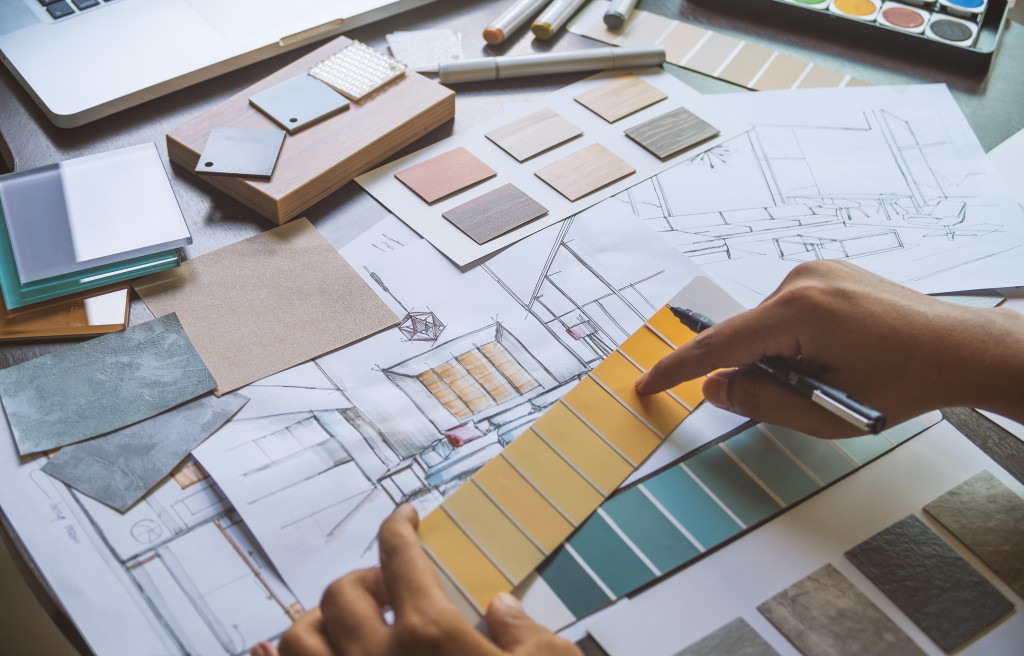Most people buy homes even though they know they will require repairs and maintenance. According to a study by the Joint Center for Housing Studies at Harvard University, “the share of U.S. households that own their homes outright or with a mortgage has fallen from 69 percent in 2000 to 63 percent.” This means that more and more people are renting, and those who own are opting for mortgages with longer terms and lower monthly payments. Despite this trend, the desire to own a home remains strong, as demonstrated by the fact that “the number of owner-occupied units increased by 1.5 million within 10 years.”
There are many reasons why people want to own homes, even though they know they will require repairs and maintenance. For one, homeownership allows people to build equity over time. In addition, owning a home is often seen as a sign of success and stability. And finally, owning a home allows people to create communities and provide stability for their families.
However, a quick home purchase can be a financial impossibility, given how high mortgage or real estate acquisitions are today. It begs the question of whether you should buy a property or a piece of land. Fortunately, buying land and building a home can be more financially feasible, especially if you are into the long-term game. Here are a few steps to include in your efforts.
Buying Land
Most people think of buying a home when they think of homeownership. But purchasing a home doesn’t have to be your only option. You can also buy land and build a house on it. This process may take longer and require more upfront costs, but in the end, you will have a brand-new home built to your specifications. The average price of an existing home has increased significantly over the past few years, while the cost of building a new home has remained relatively stable.
When you buy land, you will need to factor in the cost of any necessary improvements, such as grading or clearing the ground, and the cost of utilities, like water and electricity. In addition, you will need to pay property taxes on the land. But once you own the ground, it is an asset that can appreciate over time, providing you with equity and a potential source of income if you ever choose to sell.
Building the Foundation
Building a foundation can be one of the most critical steps in building a home. Building a solid foundation ensures that your home is stable and will not be affected by earthquakes or other natural disasters. In addition, a well-built foundation can help you save money on your monthly mortgage payments.
Building a foundation can be expensive, but it is a necessary investment. The cost of materials and labor will vary depending on your chosen foundation. A concrete foundation will be the most expensive, but it will also be the most durable. A wooden foundation may be cheaper but will not last as long and may require periodic repairs.
It is essential to consult with a foundation construction contractor before taking any steps. They can help you choose the right type of foundation for your home and budget.
Designing the Layout and Theme

The layout and theme of your home should suit your needs and lifestyle. If you have a family, you will want to consider the number of bedrooms and bathrooms you need. You will also want to make sure that there is enough space for everyone to live comfortably.
If you plan on entertaining guests often, you may want to consider including a dining room or living room in your design. And if you work from home, you will need to ensure a dedicated space for your office.
Your home’s layout and theme should also reflect your style. Do you prefer a contemporary look or a more traditional fashion? Would you like sleek lines and minimal furnishings or cozy nooks with plenty of comfort items? Consider your options carefully to create a space you love coming home to during a tiring day.
Hiring a Contractor
Once you have designed the layout and theme of your home, it’s time to start looking for a contractor. A contractor will be responsible for overseeing the construction of your home from start to finish. They will work with you to choose suitable materials, get the necessary permits, and hire subcontractors to complete the various tasks required to build your home.
It is essential to take your time when choosing a contractor. Be sure to interview several contractors and ask for references. You should also check their licensing and insurance status to ensure they are legitimate and qualified to build homes in your area.
Building Your Home for the Long Game
The tips above are just a few things you need to know before building a home. While it may seem like a daunting task, remember that you are building your home for the long game. You can create the home of your dreams without breaking the bank with proper planning and preparation.
Start by doing your research and then work with a reputable contractor to get started on your new home today!

